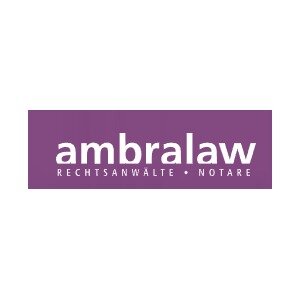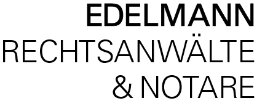Best Corporate & Commercial Lawyers in Switzerland
Share your needs with us, get contacted by law firms.
Free. Takes 2 min.
Or refine your search by selecting a city:
List of the best lawyers in Switzerland
About Corporate & Commercial Law in Switzerland
Switzerland is recognized as a global hub for commerce and corporate activities, with a legal framework that encourages entrepreneurship, facilitates international business, and supports innovation. Corporate and commercial law in Switzerland encompasses regulations governing companies, business transactions, contracts, mergers and acquisitions, intellectual property, and dispute resolution. The Swiss legal environment is known for its stability, predictability, and investor-friendliness, making the country an attractive location for both domestic and international businesses.
Why You May Need a Lawyer
Navigating the complexities of corporate and commercial law often requires specialized legal knowledge. Common situations where legal assistance is essential include:
- Setting up a new company or branch office in Switzerland
- Drafting, reviewing, or negotiating commercial contracts
- Handling mergers, acquisitions, or restructuring
- Complying with local and international regulations
- Resolving shareholder or partnership disputes
- Protecting and managing intellectual property rights
- Managing employment law issues within your company
- Addressing cross-border business matters
- Handling insolvency or bankruptcy cases
- Ensuring tax compliance and effective corporate governance
In these scenarios, an experienced lawyer can guide you through regulations, help avoid legal pitfalls, and safeguard your business interests.
Local Laws Overview
Switzerland’s corporate and commercial laws are mainly derived from the Swiss Code of Obligations, supplemented by other statutes and federal regulations. Key aspects to consider include:
- Company Forms: Common business entities include the limited liability company (GmbH/Sàrl), public limited company (AG/SA), and partnerships. Each has unique requirements for formation, governance, and liability.
- Shareholders and Directors: Swiss law outlines specific rights and responsibilities for shareholders and board members, with strict rules on transparency, record-keeping, and fiduciary duties.
- Contract Law: Swiss contract law is flexible but requires clarity in drafting. Standard business practices often follow international norms.
- Mergers and Acquisitions: Transactions often involve careful legal structuring, due diligence, and regulatory compliance, especially in regulated sectors.
- Foreign Investment: While generally open, certain sectors may require special approvals or have restrictions for non-Swiss investors.
- Intellectual Property: Switzerland provides robust protection for IP, including patents, trademarks, and copyrights.
- Employment Law: Employment contracts, workplace safety, and employee benefits are subject to federal and cantonal regulations.
- Dispute Resolution: Commercial disputes can be resolved through Swiss courts or arbitration, known for efficiency and neutrality.
Frequently Asked Questions
What are the main types of business entities in Switzerland?
The most common types are the limited liability company (GmbH/Sàrl), public limited company (AG/SA), sole proprietorship, and partnerships. Each differs in terms of liability, minimum capital, and administrative requirements.
Can foreigners start a business in Switzerland?
Yes, foreigners are allowed to establish businesses in Switzerland. However, at least one director with signatory rights must reside in Switzerland.
What does the incorporation process involve?
Company incorporation typically includes choosing a company name, drafting Articles of Association, depositing minimum capital, registering with the Commercial Register, and complying with tax and social security rules.
How are commercial contracts regulated?
Commercial contracts are primarily governed by the Swiss Code of Obligations. While freedom of contract prevails, contracts must not violate public policy or mandatory provisions of law.
What are the general tax implications for companies?
Swiss companies are subject to federal, cantonal, and communal taxes. Key taxes include corporate income tax, withholding tax, and value-added tax (VAT). Tax rates and incentives can vary by canton.
Is Swiss law favorable for mergers and acquisitions?
Yes, the legal framework is business-friendly, but M&A transactions often require careful structuring, competition law clearance, and sometimes sector-specific authorization.
How are shareholder disputes resolved?
Disputes can be resolved through negotiations, mediation, Swiss courts, or arbitration, depending on what was agreed in advance by the parties involved.
Do employment contracts need to be in writing?
Employment contracts can be verbal or written, but written contracts are strongly recommended to clearly define rights and obligations.
How is intellectual property protected?
Intellectual property is protected by federal laws covering patents, trademarks, designs, and copyrights. Registration is needed for certain rights, such as patents and trademarks.
Can disputes be settled outside Swiss courts?
Yes, arbitration is widely used in Switzerland, especially for international commercial disputes, thanks to Switzerland’s reputation for neutrality and efficient proceedings.
Additional Resources
If you require further information or assistance, consider reaching out to the following organizations and authorities:
- Swiss Bar Association (SAV/FSA): Professional body for lawyers in Switzerland
- Commercial Register (Handelsregister/Registre du Commerce): Official registration of companies and legal entities
- Swiss Federal Tax Administration: Guidance on tax matters for businesses
- Swiss Federal Institute of Intellectual Property: Information on IP rights and registration
- Swiss Arbitration Association: Resources on arbitration and dispute resolution
- SECO (State Secretariat for Economic Affairs): Support for businesses and information on foreign investment
- Cantonal Chambers of Commerce: Local support and business resources
Next Steps
If you need legal assistance with corporate or commercial matters in Switzerland, consider the following steps:
- Identify your specific legal needs, such as company formation, contract review, or dispute resolution
- Collect all relevant documents and background information
- Contact a qualified lawyer who specializes in Swiss corporate and commercial law
- Schedule an initial consultation to discuss your case and clarify legal fees
- Request a written engagement letter outlining the lawyer’s services and terms
- Follow your lawyer’s advice on compliance, documentation, and next steps
Early legal advice can protect your interests, prevent business disputes, and ensure your operations comply with all Swiss laws and regulations.
Lawzana helps you find the best lawyers and law firms in Switzerland through a curated and pre-screened list of qualified legal professionals. Our platform offers rankings and detailed profiles of attorneys and law firms, allowing you to compare based on practice areas, including Corporate & Commercial, experience, and client feedback.
Each profile includes a description of the firm's areas of practice, client reviews, team members and partners, year of establishment, spoken languages, office locations, contact information, social media presence, and any published articles or resources. Most firms on our platform speak English and are experienced in both local and international legal matters.
Get a quote from top-rated law firms in Switzerland — quickly, securely, and without unnecessary hassle.
Disclaimer:
The information provided on this page is for general informational purposes only and does not constitute legal advice. While we strive to ensure the accuracy and relevance of the content, legal information may change over time, and interpretations of the law can vary. You should always consult with a qualified legal professional for advice specific to your situation.
We disclaim all liability for actions taken or not taken based on the content of this page. If you believe any information is incorrect or outdated, please contact us, and we will review and update it where appropriate.
Browse corporate & commercial law firms by service in Switzerland
Switzerland Attorneys in related practice areas.
Browse corporate & commercial law firms by city in Switzerland
Refine your search by selecting a city.
















